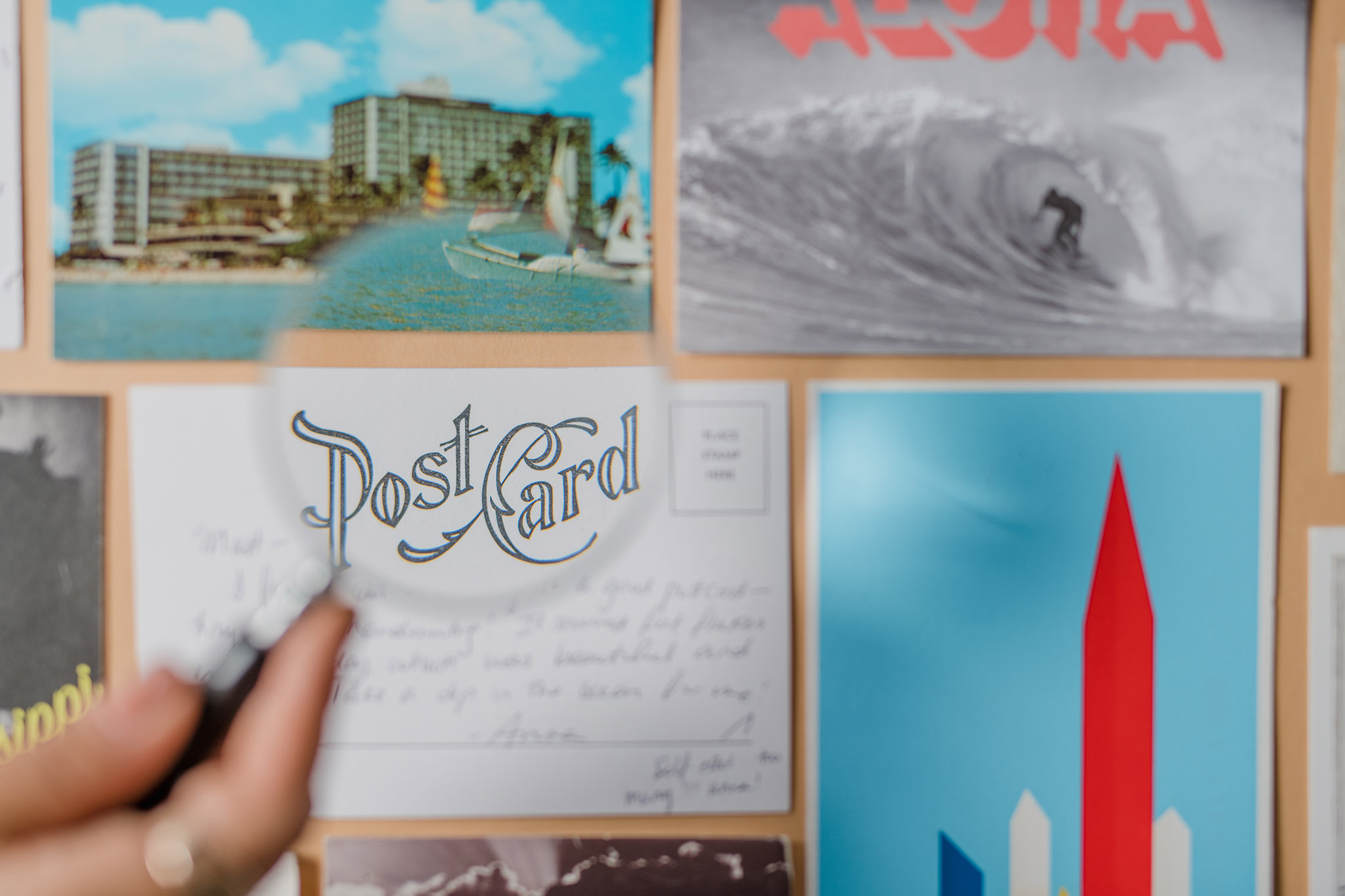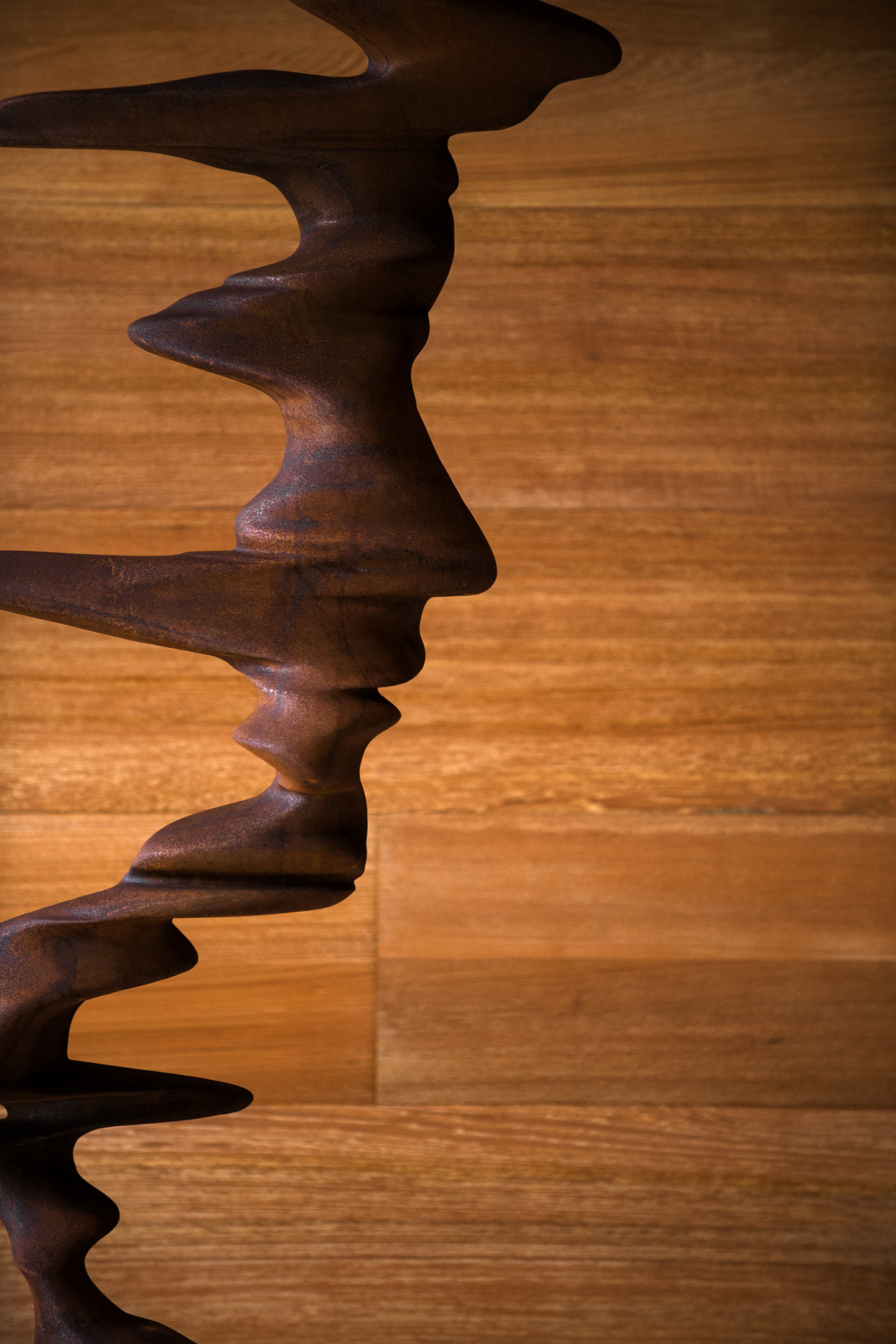Text by Martha Cheng
Images by Chris Rohrer
Wish you were here? I don’t. Because if you were, I wouldn’t be writing this.
If you were traveling with me, you might be frustrated by my process. First, the hunt for the perfect postcard: spinning racks of decades-old stock photos of cherry blossoms against Mount Fuji or a full moon over the Empire State Building; stopping in a modern design store for a postcard embedded with a photo slide of Taipei 101 that shimmers like the actual building when held up to the light. Refusing to leave a shop in the U.S. Midwest until I’ve read every postcard with text like “Iowa City: All our creativity went into the name” and “Actually, we’re just outside the middle of nowhere.”
And then, my favorite part: finding a place to write. In Mexico City, I sit at the smooth concrete counter of a restaurant made of more windows than walls. In the early morning, the sun shines directly on a tray of guava pastries in front of me, while I eat at a rate of one pastry per two postcards.
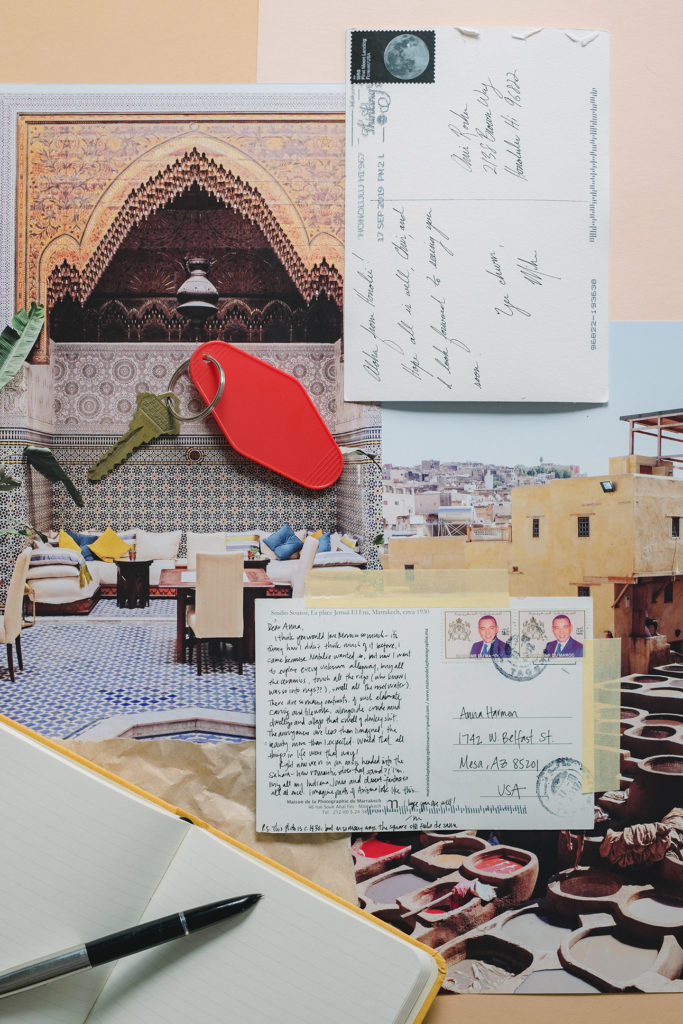
In Tokyo, I write in the most sumptuous bookstore I’ve ever seen, settling into a lounge with shelves of international magazines from the ’60s and ’70s, sipping a drink from its “cocktail with movies” menu, a gimlet based on The Long Goodbye.
If you were here, you would probably hate that I missed my entry time for the Colosseum because I had to stop and wipe gelato from my postcard, or that on a cold winter morning in Paris, I sat for hours in front of the Notre Dame because the sight of it in the flat grey light made me so melancholy I needed to write you right then and there. That would be the last time I would see the spire before the fire claimed it.
Sometimes, I do wish you were here, to see if you also feel you never knew what sublime meant until you saw the Sistine Chapel with your own eyes, or for you to take the wheel because I am tired—and though I won’t admit it, scared—of driving the winding road through the Atlas Mountains in the middle of the night, where not a single reflector or guard rail protects us from the cliff’s edge.
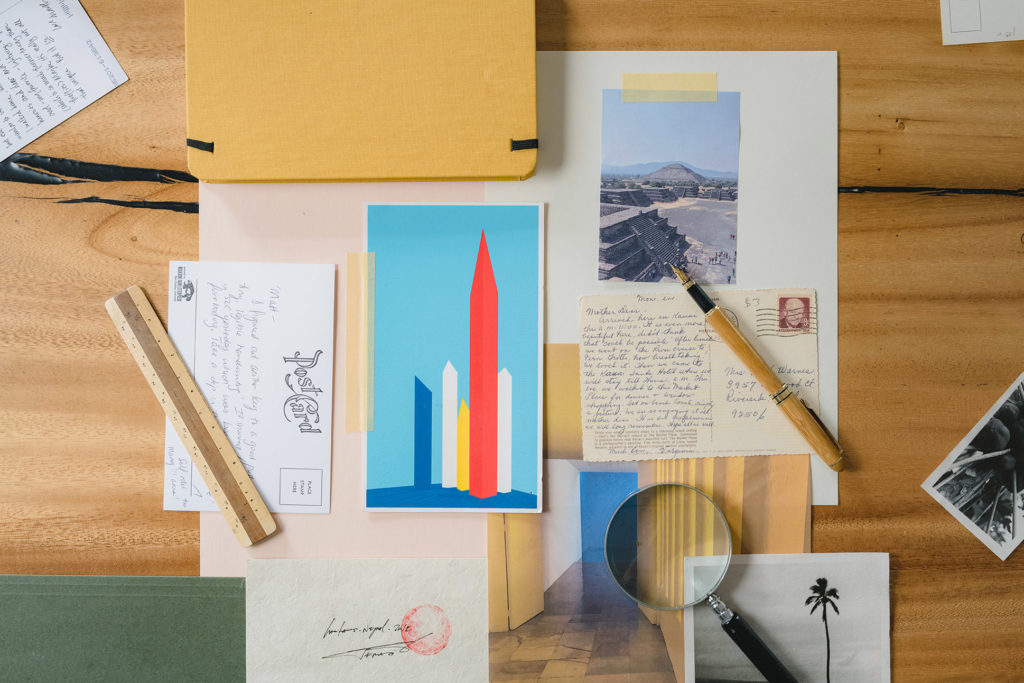
That is when I write you, when the emotions of travel—joy, discovery, wonder, fear, loneliness, exhaustion—breach the levee, and sending a postcard is a release valve.
There are churches and temples and ruins and museums that I have not seen because I am waiting at a post office to buy stamps. But it’s the quotidian events—taking a number among people trying to pay utility bills—that make me feel as if I’m not just passing through, even if I am always passing through.
Buying stamps is perhaps the most tedious part of sending a postcard, since post offices always seem to be out of the way and open sporadically, but the rewards are tiny perforated works of art: in Morocco, one depicting Mohammed VI, the king; in New Zealand, Legolas in Lord of the Rings. Each one is a ticket to magic.
I once deposited a postcard destined for Honolulu in a forlorn, yellow mailbox on the edge of the desert in Morocco, and I thought, this could be the first time one gets lost. But it arrived at its destination. They always have.
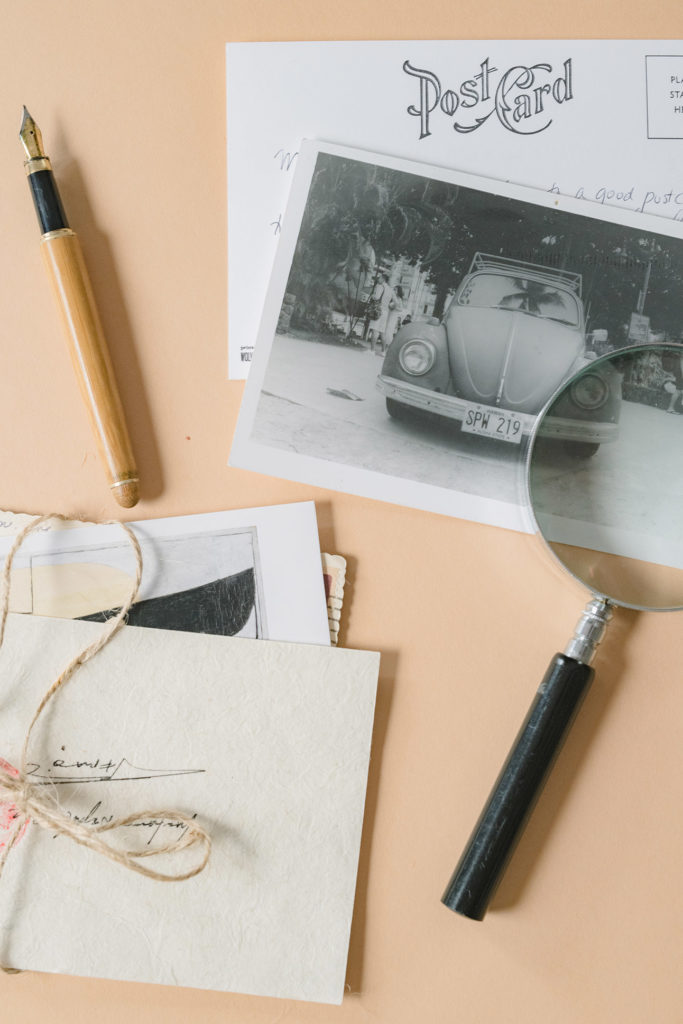
“I know how much you love the post, so I made this using technology,” reads a note someone sent me via an online postcard company, the kind with which you upload a photo and type a message. He sent it after an argument we had over the necessity of the postal service. He said my love of it was purely romantic, not practical.
I suppose that sums up my existence. I am, after all, a writer for magazines and newspapers, and you are one of the few people left still reading them.
But what is a life except all those small, romantic moments? So much of travel has changed over the decades, from newly accessible regions to Google Maps to even postcard apps.
But I can still send a postcard with a pen, a stamp, and a mailbox, just as James Joyce did more than a century ago from Trieste (where you can still write in the same cafés he frequented). I know that what I write is even more of a snapshot than the photo on the front—by the time you get this, I will be somewhere else. But I will continue to write you from the past.




